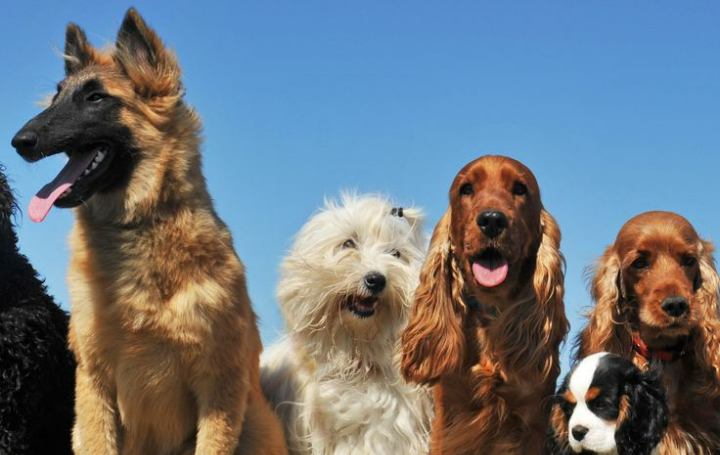Senior Dogs: Tips for Caring for Your Aging Canine Companion
Our cherished canines’ demands and behaviors evolve with age, just like our own. Senior dog care can be a fulfilling experience that allows us to return some of the unconditional love our pets have shown us over the years.
Your pet will age more gracefully and contentedly if you are aware of their needs, regardless of whether they are approaching or past their golden years.
Understanding When Your Dog Becomes a Senior
Depending on their size and breed, dogs age differently. At approximately 9–11 years old, little dogs (under 20 pounds), medium-sized dogs (20–50 pounds), large dogs (50–90 pounds), and gigantic breeds (above 90 pounds) are all regarded as seniors.
But remember, these are only suggestions, and your dog’s age is greatly influenced by their lifestyle, genetics, and overall health.
Common Signs of Aging in Dogs
As dogs age, they often undergo various behavioral and physical changes. One common sign of aging is the appearance of grey hair, particularly around their muzzle. Additionally, you might notice a decrease in their activity levels; older dogs often prefer shorter walks and more frequent naps compared to their younger days.
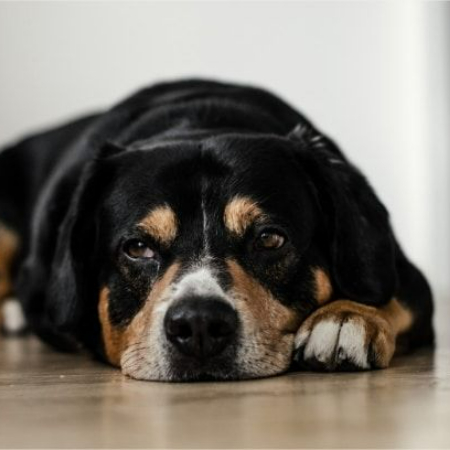
Joint stiffness is also prevalent, with conditions like arthritis causing discomfort and difficulty moving. Vision and hearing may decline, leading to your dog bumping into objects or not responding as quickly to their name.
Weight changes are another factor, with some dogs losing weight due to dental issues or health problems, while others may gain weight due to reduced activity. Finally, behavioral shifts can occur, such as increased anxiety, disorientation, or changes in sleep patterns.
Diet and Nutrition: Feeding Your Senior Dog
Dogs’ general health depends even more on eating a balanced diet as they become older. Compared to younger dogs, senior dogs have different dietary needs. To maintain muscle mass, they might need to eat additional high-quality protein sources like chicken, fish, or lamb. Additionally, more fiber improves digestion and lessens the likelihood of constipation.
They still need lipids in their diet, but controlling how much they eat is crucial to preventing obesity, which puts stress on their joints. Vitamins and minerals also have a significant impact; antioxidants strengthen the immune system and supplements like glucosamine and chondroitin improve joint health.
Controlling calorie intake is essential to avoid unneeded weight gain in elderly dogs, as they frequently have lower energy needs. When choosing the right diet for your senior dog, speaking with your veterinarian is always a smart move.
Exercise: Keeping Your Senior Dog Active
Exercise regularly is still crucial for the general health of dogs, even though they might not have the same stamina as younger dogs. Rather than taking your elderly dog for a single, long walk, think about giving them small, regular walks throughout the day.
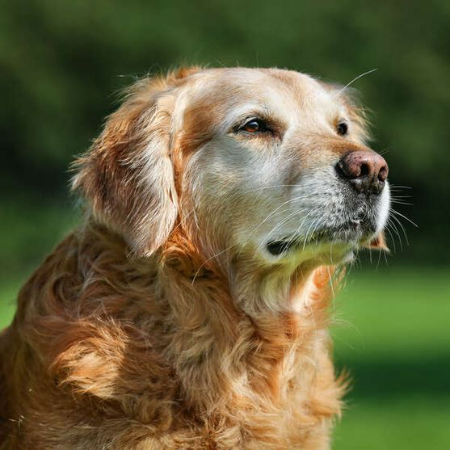
This will help them stay active and lessen the chance of joint problems. Swimming and other low-impact exercises are great since they are easy on the joints and improve cardiovascular health. Playing with toys gently can be both fun and healthy.
Remember that cerebral stimulation is just as vital as physical exercise for your dog. Scent games, puzzle toys, and mild training activities can all help maintain your dog’s mental agility. Be aware of your dog’s boundaries at all times; if they appear exhausted, begin to pant excessively, or find it difficult to keep up, they need a rest.
Joint Health: Supporting Your Dog’s Mobility
Senior dogs frequently experience joint pain and arthritis, but there are various ways to keep them comfortable. Giving them a cozy place to sleep and a comfortable bed, such as an orthopedic bed with memory foam, helps ease the strain on their joints. Using ramps or stairs can help your dog reach areas like the couch or bed that they find difficult to leap onto without causing further stress to their joints.
Controlling their weight is also essential because it relieves pressure on their joints to maintain a healthy weight. A balanced diet and regular, moderate exercise can help you achieve this. Joint discomfort can also be reduced and mobility enhanced with the use of a light massage or expert physical therapy.
Additionally, to help keep your dog as comfortable as possible, your veterinarian may prescribe drugs to treat pain and inflammation or suggest joint supplements like glucosamine.
Regular Vet Visits: The Importance of Check-Ups
Regular veterinary appointments are crucial for the early detection and treatment of health issues in dogs, as their chances of developing them rise with age. Your veterinarian can screen for several diseases at these visits, including cancer, diabetes, and kidney disease, to make sure any problems are identified and addressed quickly.
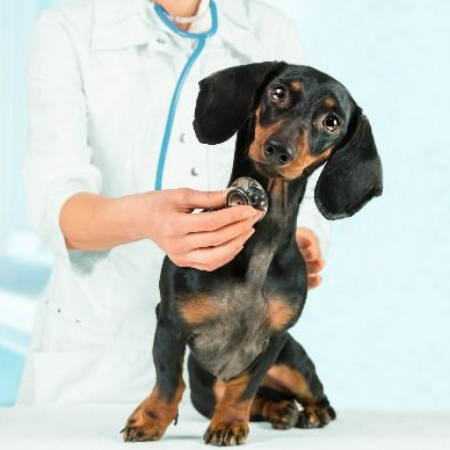
Dental care is also very important because older dogs are more likely to have dental issues that require frequent cleanings and check-ups and can cause pain, infection, and difficulties eating. In addition to regular deworming, heartworm prevention, and flea and tick control, vaccinations are still crucial for older dogs.
Additionally, to keep an eye on organ function and spot any early warning symptoms of disease, your veterinarian can advise routine blood work, which would assist in preserving the health and quality of life of your senior dog.
Dental Health: Caring for Your Dog’s Teeth
While dental health is sometimes disregarded in dogs, seniors in particular need to pay extra attention to their oral hygiene because it can cause pain, infections, and other major health problems. Regular brushing with a toothpaste and toothbrush designed specifically for dogs will help prevent gum disease and plaque accumulation, which is essential for maintaining your senior dog’s teeth.
Dental chews are an additional useful tool that can help your dog get rid of tartar and plaque while also treating them to a nice treat. To eliminate tartar and take care of any dental issues, your veterinarian might also advise getting your teeth professionally cleaned.
It’s also critical to keep an eye out for symptoms of dental disorders since these might point to conditions that need to be seen by a veterinarian. These symptoms include foul breath, trouble eating, drooling, and pawing at the mouth.
Creating a Safe and Comfortable Environment
It’s crucial to make changes to your dog’s surroundings as they get older to protect and soothe them. Reduce the number of risks in your home by taking out any objects that your dog could trip over. You can also think about installing non-slip rugs to stop accidents on slick flooring.
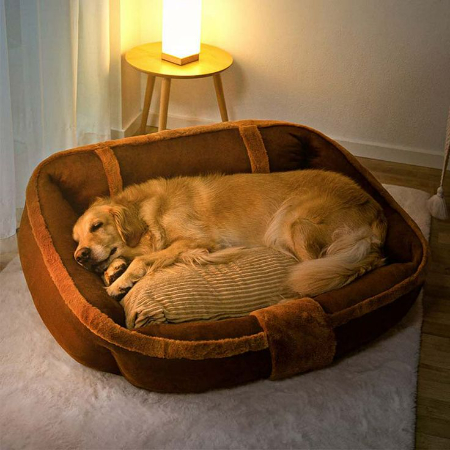
It’s also critical to ensure that your dog has easy access to their favorite resting places, food, and water; you may need to increase their bowls or use ramps to help them climb onto furniture. Senior dogs can be kept warm and comfortable with a nice, cozy bed and, in colder months, a doggy sweater.
Senior dogs are generally more sensitive to temperature changes. Finally, because dogs like consistency, it’s important to keep up a regular schedule. As kids become older, maintaining regular feeding, walking, and playtime patterns might help lessen confusion and anxiety.
Managing Age-Related Health Issues
Because older dogs are more likely to develop certain health issues, it’s critical to understand typical age-related problems in dogs and how to treat them. Dogs over the age of 50 are more likely to develop arthritis, but joint supplements, drugs, and physical therapy can help reduce discomfort and increase mobility.
Another issue is Cognitive Dysfunction Syndrome (CDS), which can lead to disorientation, confusion, and behavioral abnormalities. It resembles dementia in humans. Keeping a regular schedule, giving mental stimulation, and relieving symptoms with vet-prescribed drugs are all part of managing CDS.
Another ailment that increases in likelihood with age is heart disease. Effective management of this ailment can be achieved with a balanced diet, frequent veterinary appointments, and the right drugs. Senior dogs are also susceptible to kidney disease, therefore your veterinarian may recommend a particular diet in addition to medication to support renal function and limit the disease’s progression.
Lastly, as dogs become older, their chance of developing cancer rises. Since prompt treatment from the veterinarian depends on early diagnosis, it’s critical to keep an eye out for any unusual lumps or bumps and schedule routine veterinary checkups.
Emotional Well-being: Keeping Your Senior Dog Happy
To maintain their happiness and well-being, senior dogs still need love, care, and cerebral stimulation. They must spend quality time together; even if it’s just a stroll, a snuggle on the couch, or some quiet time spent together, these experiences significantly improve their wellbeing.
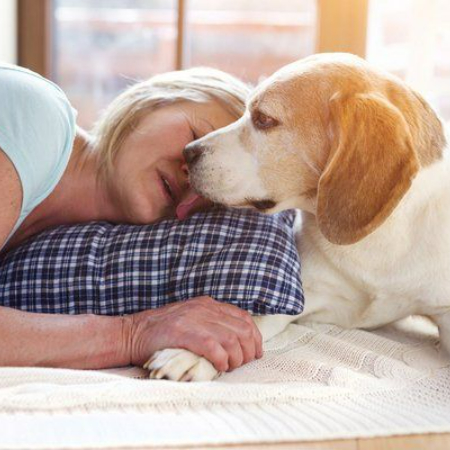
Keeping their minds active and sharp can be achieved by interactive play, training exercises, and mental stimulation. It’s important to comfort and reassure dogs as they get older since they could get more nervous or confused.
They can feel more confident if their surroundings are steady and peaceful. Lastly, remember to be sympathetic and patient with your dog. They might not be able to hear, see, or move as swiftly as they once did, but your love and tolerance will help them feel secure and loved as they age.
Preparing for the End of Life
Though planning for your dog’s end of life is never pleasant, it’s necessary to make sure their last days are as comfortable and quiet as possible. Speak with your veterinarian first to learn what to anticipate as your dog gets closer to the end of their life.
They can offer advice on how to control pain and maintain your dog’s comfort. Hospice care is another option to think about; some veterinarians provide this service, which aims to improve comfort and quality of life in your dog’s last days.
Whether you prefer to handle your dog’s death at home or in a veterinary facility, it’s also beneficial to have a plan ahead of time. Having these arrangements in place helps facilitate the process and provides the most loving and dignified death experience for your dog.
